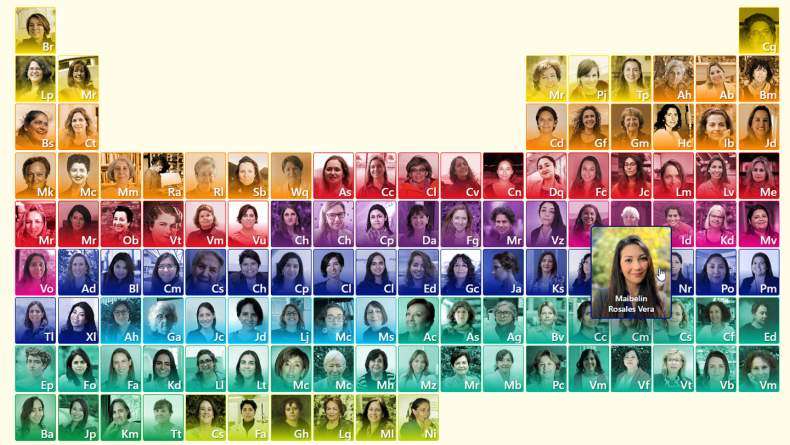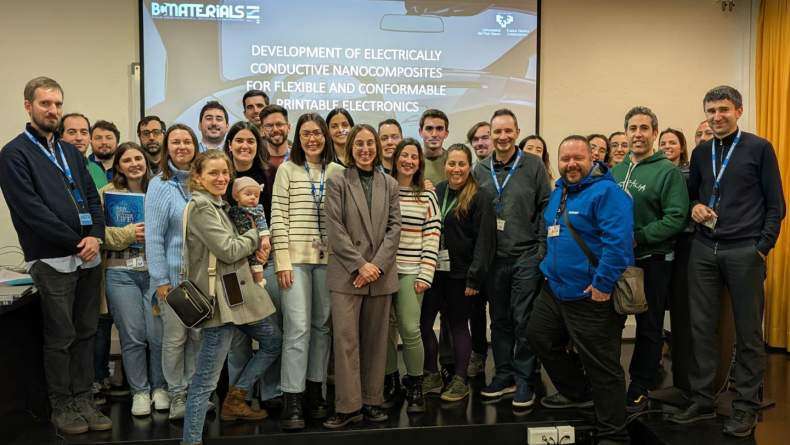Four New National BCMaterials Projects in the ‘Generación de Conocimiento’ Program

Four projects presented by BCMaterials have obtained the approval of the Spanish Ministry of Science and Innovation within the State Subprogram ‘Generación de Conocimiento (Knowledge Generation) 2022’. The center obtained the approval of 80% of its proposals to this call. Two of the approved projects will develop innovative solutions in biomedicine and biotechnology, while the other two will be oriented towards sustainable energy generation.
Projects in biomedicine and biotechnology
In the field of biomedicine and biotechnology, BCMaterials will develop the DAMIS and BIOELECTROSURF projects. The DAMIS project (Dynamically adaptive microenvironment for spinal cord regeneration) aims to contribute to the regeneration of the spinal cord after an injury. For this, electroactive hydrogels will be used combined with the beneficial effects of the secretome of mesenchymal stem cells, which have been proposed as a potential therapeutic agent for the treatment of spinal cord injuries. The project will develop a multilayer active scaffold based on hydrogels capable of adapting the biophysical and biochemical stimuli provided to cells in space and time, depending on the requirements of the regenerating tissue.
For its part, BIOELECTROSURF (Biomimicking Electroactive Surfaces through Patch Patterning Engineering) aims to develop a new generation of nanoparticles and surfaces directly applicable to nanomedicine and tissue engineering, respectively, with controlled interactions. The project addresses the problem of protein adsorption on the surfaces of biomaterials, which is the main cause of biomaterial malfunction and even total failure. BIOELECTROSURF will develop theoretical and experimental methods to design coatings with a layer of protein mimetic polymers capable of counteracting the formation of biofilms.
Projects in sustainable energy generation
As regards projects related to sustainable energy generation, the first is the MAGCALORICH project (Searching improved magnetocaloric materials for hydrogen liquefaction exploiting magnetic anisotropy). The goal of this work will be to optimize the liquefied hydrogen (H2) in its use as fuel without polluting residues. Currently, 30% of the energy that can be extracted from H2 is used in its liquefaction, which is why more efficient systems are imposed to accelerate its viability as a fuel in large-scale use. The project proposes to use new materials optimized for magnetic refrigeration, much more effective than cryogenic refrigeration technologies currently used.
The fourth approved project, called NABICO (Sodium-ion Secondary Biodegradable and Compostable Batteries), aims to develop a new generation of state-of-the-art portable secondary batteries, capable of performing their task and then degrading safely in natural ecosystems. Battery demonstrators will be created, specifically designed to power devices within the area of precision agriculture. The battery prototypes will be produced using non-critical and bioderived materials that can be obtained from the local bioeconomy and through the recovery of industrial waste.
Related news
Maibelin Rosales, in the Periodic Table of Chilean Female Scientists
We would like to congratulate our Marie Curie postdoctoral researcher, Maibelin Rosales, for being selected as one of the 118 researchers recognized in the Periodic Table of Chilean Female Scientists…Esraa Sewlam and Lía Campos, New Doctors of BCMaterials
We would like to extend our sincere congratulations to pre-doctoral researchers Esraa Sewlam and Lía Campos Arias for obtaining their PhDs in Materials Science and Technology from the UPV/EHU.…Invited Talk with Maia García-Vergniory (March 13th)
BCMaterials is proud to host the very prestigious Basque researcher Maia García-Vergniory in a new invited talk to take plane in March 13th. The talk is titled: “Topology is everywhere” and wil,…Two new pre-doctoral researchers at BCMaterials
We would like to welcome to our center two new pre-doctoral researchers: Masuma Suleymanova and Ana Gómez Simón, who will work in the computational materials science and active and smart materials…



